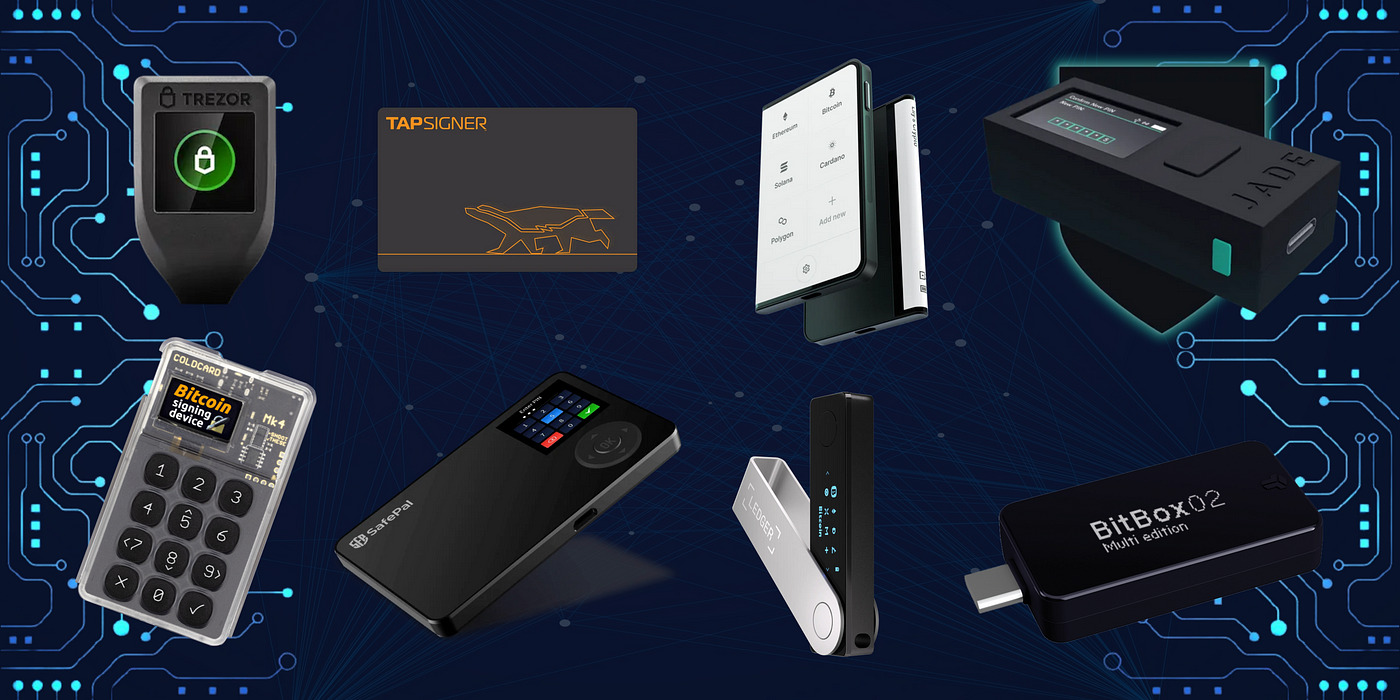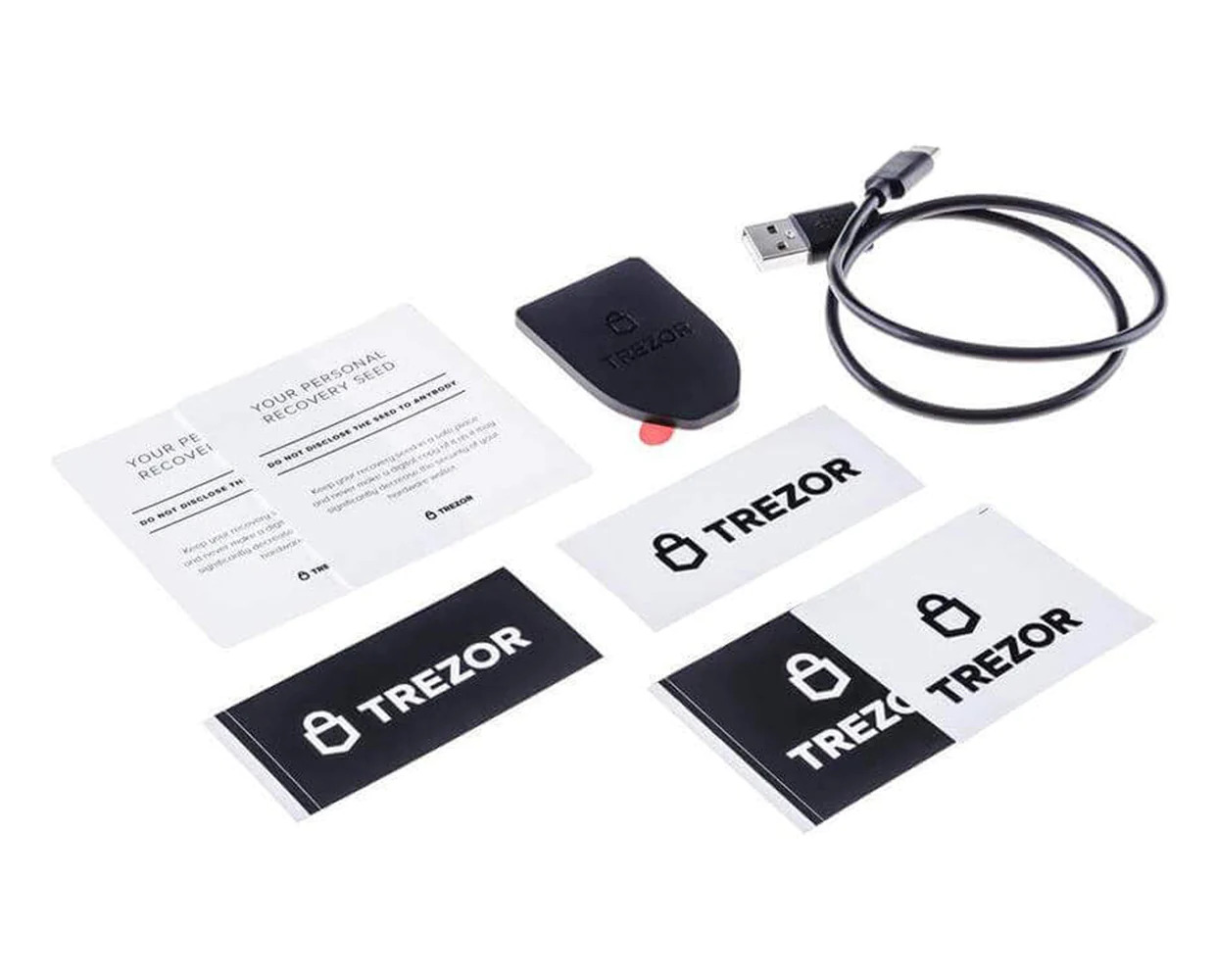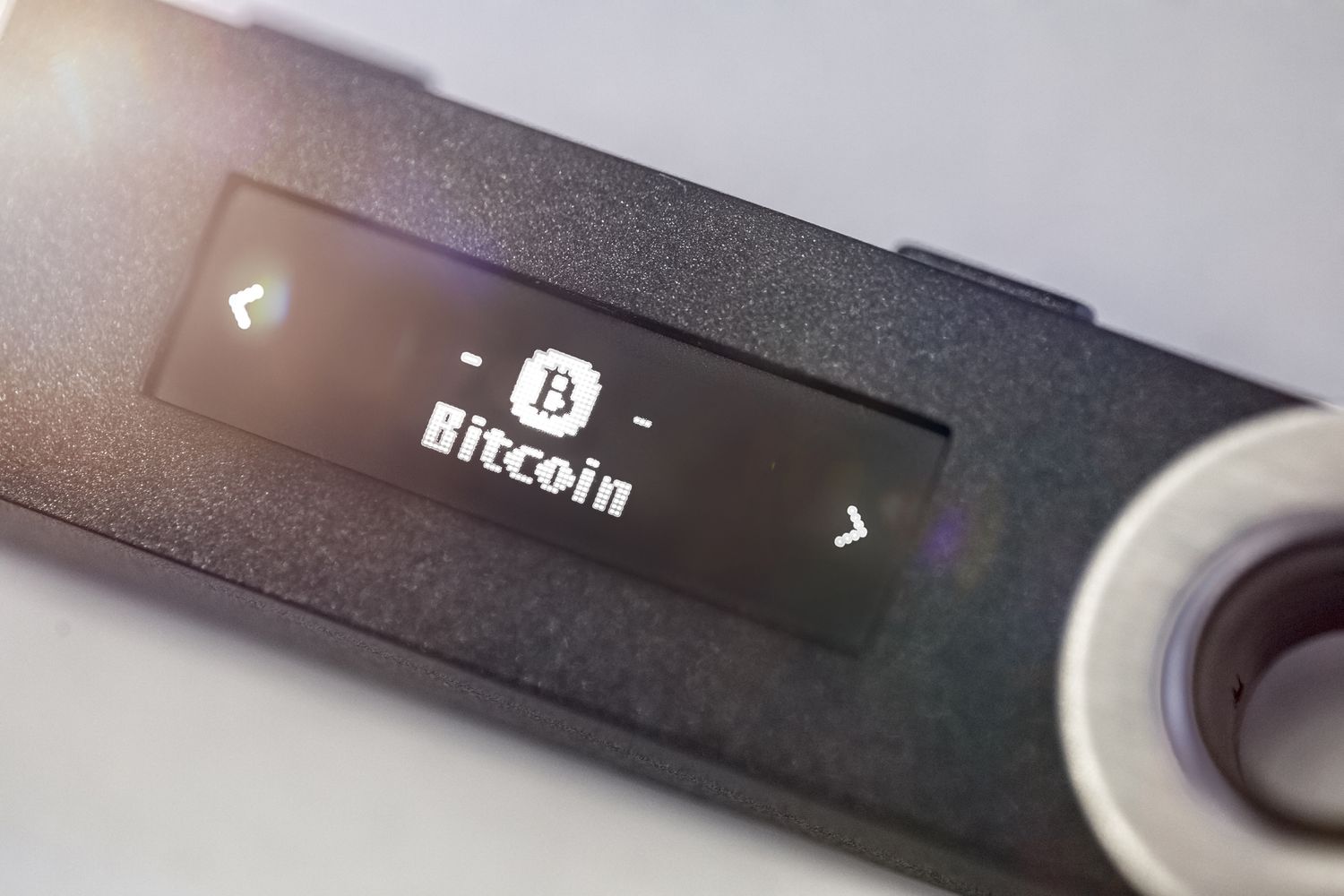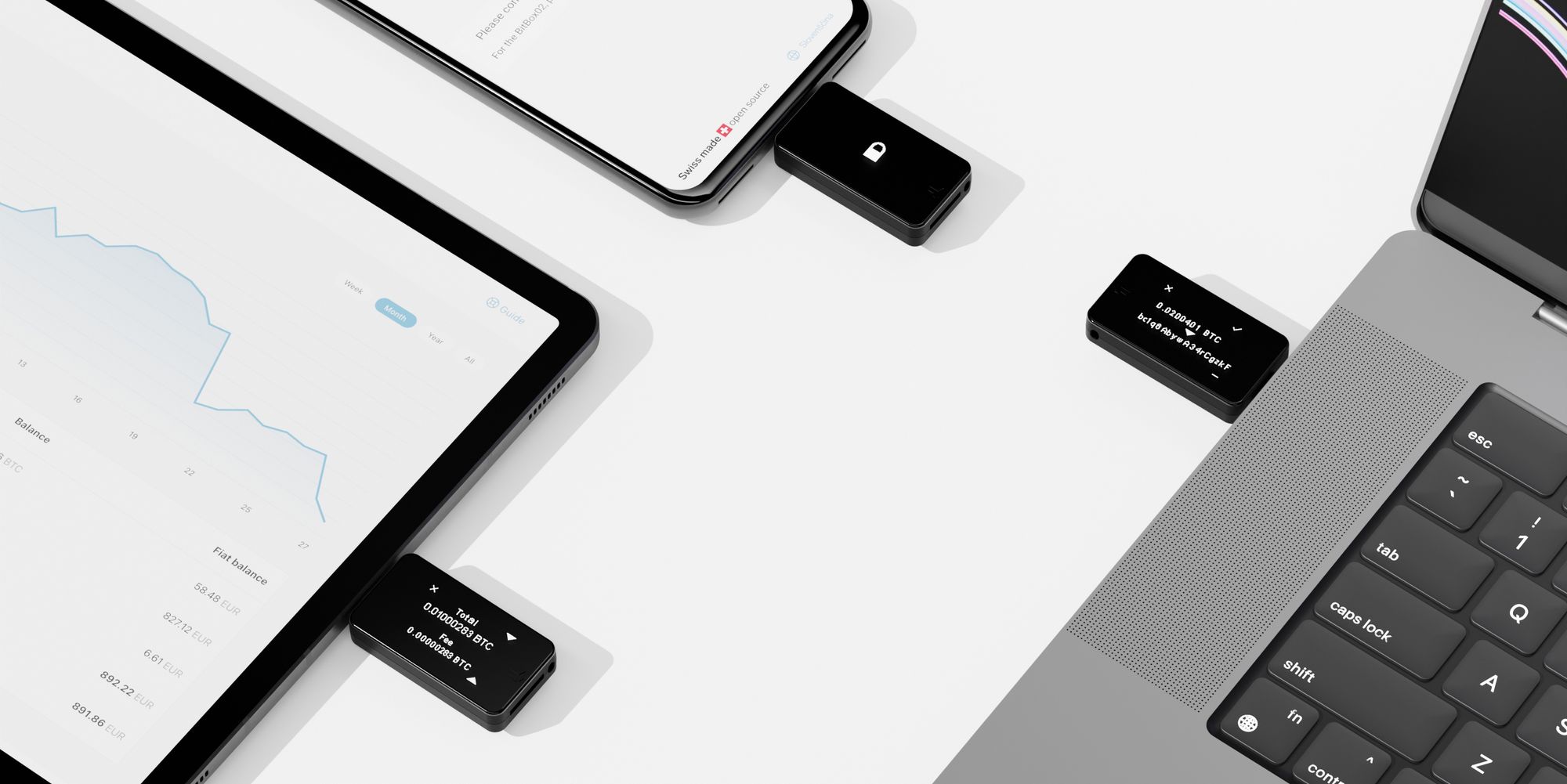What Is a Hardware Wallet?
A hardware wallet is a specialized device that is designed to securely store and manage cryptocurrencies. As the name suggests, it is a physical device that provides an extra layer of security for users’ digital assets. Unlike software wallets, which are stored on computers or mobile devices, a hardware wallet keeps the private keys necessary for accessing and transacting cryptocurrencies offline.
Hardware wallets are often referred to as “cold wallets” because they are not connected to the internet when not in use, thus minimizing the risk of hacking or unauthorized access. This isolation from online threats makes hardware wallets one of the most secure options for storing cryptocurrencies.
Typically, a hardware wallet consists of a small, portable device with a USB connection or Bluetooth capability. It has a small screen, buttons, and other features that facilitate the management of cryptocurrencies. The device generates and stores the private keys needed to sign transactions securely. Some hardware wallets also have PIN codes or built-in biometric authentication to further protect the funds stored on the device.
Hardware wallets support various cryptocurrencies, including Bitcoin, Ethereum, Litecoin, and many others. They provide a user-friendly interface that allows users to easily send and receive cryptocurrencies, check their account balance, and manage multiple wallets.
It is important to note that a hardware wallet does not actually store the cryptocurrencies themselves, but rather the private keys that control access to those assets. The actual cryptocurrencies are stored on the blockchain, a decentralized and transparent ledger.
Overall, hardware wallets provide a secure and convenient way for cryptocurrency holders to protect their digital assets. They offer a greater level of protection against various security threats, including malware, phishing attacks, and physical theft of devices. By keeping the private keys offline, hardware wallets ensure that even if a computer or mobile device is compromised, the cryptocurrencies remain safe and inaccessible to unauthorized individuals.
How Does a Hardware Wallet Work?
A hardware wallet works by securely storing the private keys used to access and manage cryptocurrencies. These private keys are mathematically generated and are unique to each individual wallet owner. The wallet also includes a software component that enables users to interact with the device and perform transactions.
When setting up a hardware wallet, users are required to initialize the device by creating a unique PIN code or passphrase. This PIN code serves as an additional layer of protection, ensuring that only authorized users can access the wallet. Some hardware wallets also support biometric authentication, such as fingerprint scanning, to further enhance security.
Once the wallet is set up, it can be connected to a computer or smartphone via a USB cable or Bluetooth connection. The device then interacts with specialized wallet software, which enables users to manage their cryptocurrencies. This software may be provided by the hardware wallet manufacturer or be part of a third-party cryptocurrency management platform.
When a cryptocurrency transaction needs to be performed, the hardware wallet generates a unique digital signature using its private key. This signature is used to verify the transaction and ensure that it was authorized by the wallet owner. The transaction details are displayed on the wallet’s screen for the user to review and confirm. Once confirmed, the signed transaction is sent to the network for processing.
One of the key security features of a hardware wallet is its ability to keep the private keys offline. This means that the keys are never exposed to potentially insecure online environments, such as a computer connected to the internet. The offline storage of private keys ensures that they are protected from malware, hacking attempts, and other online threats.
In summary, a hardware wallet works by securely storing private keys offline and using them to generate digital signatures for cryptocurrency transactions. By keeping the keys offline, hardware wallets provide an additional layer of security and protect against online threats. The combination of secure storage, user authentication, and transaction verification makes hardware wallets an ideal choice for those who prioritize the safety of their digital assets.
Benefits of Using a Hardware Wallet
Using a hardware wallet to manage your cryptocurrencies offers numerous benefits, including:
- Enhanced Security: Hardware wallets provide a high level of security by keeping your private keys offline. This greatly reduces the risk of hacking, phishing attacks, and malware compromising your digital assets.
- Protection against Physical Theft: Hardware wallets are designed to be portable, making it easier to store them in a secure location. Even if someone gains physical access to your device, they would still need your PIN code or passphrase to access the funds.
- User-Friendly Interface: Most hardware wallets feature a user-friendly interface with a screen and buttons, making it easy to navigate and perform transactions. The straightforward setup process ensures that even those new to cryptocurrencies can use a hardware wallet with ease.
- Support for Multiple Cryptocurrencies: Hardware wallets generally support various popular cryptocurrencies, allowing you to securely store and manage a diverse portfolio of digital assets in one device.
- Offline Transaction Signing: With hardware wallets, you can sign cryptocurrency transactions offline. This adds an extra layer of security since your private keys remain isolated from potentially compromised devices or networks.
- Backup and Recovery Options: Hardware wallets often provide backup and recovery options, such as seed phrases or backup codes. These features ensure that even if your device is lost, stolen, or damaged, you can regain access to your funds.
- Privacy and Anonymity: Using a hardware wallet allows you to maintain a higher level of privacy and anonymity compared to online wallets. Your transactions are not directly linked to your personal information, enhancing the overall security of your financial activities.
By leveraging the benefits of a hardware wallet, you can have peace of mind knowing that your cryptocurrencies are stored securely and can be accessed conveniently when needed. With their robust security measures and user-friendly interfaces, hardware wallets are widely recognized as a trusted and reliable solution for managing digital assets.
Risks and Limitations of Hardware Wallets
While hardware wallets offer excellent security for managing cryptocurrencies, they still come with their own set of risks and limitations. It’s important to be aware of these factors to make informed decisions about using a hardware wallet:
- Physical Damage or Loss: Hardware wallets, like any physical device, are susceptible to damage or loss. If your hardware wallet is damaged, stolen, or misplaced, accessing your funds may become challenging. It’s crucial to keep your hardware wallet in a safe and secure location, ideally backed up with a recovery option like a seed phrase.
- Initial Cost: Acquiring a hardware wallet requires an upfront investment. While the cost varies depending on the model and features, it can be seen as an investment in the security and protection of your cryptocurrencies. It’s essential to compare different hardware wallets to find the one that fits your budget and requirements.
- User Error: It’s crucial to use a hardware wallet correctly and follow the provided instructions. User errors, such as entering incorrect PIN codes or mishandling the device, can lead to loss of access to funds or compromise the security of the wallet. Familiarize yourself with the operating procedures and take necessary precautions to avoid potential mistakes.
- Limited Compatibility: Not all hardware wallets support the same range of cryptocurrencies. Before purchasing a hardware wallet, ensure that it is compatible with the specific cryptocurrencies you wish to store and manage. It’s important to research and select a wallet that offers support for your preferred cryptocurrencies.
- Dependency on Third-Party Software: While hardware wallets provide robust security, they often rely on third-party wallet software to interact with the device. It’s essential to choose reputable and trusted software providers to reduce the risk of potential vulnerabilities or malicious attacks on the software you use with your hardware wallet.
- Emerging Threats: Cryptocurrency technology is continually evolving, and new security threats may emerge. It’s crucial to stay updated on the latest security practices and firmware updates provided by hardware wallet manufacturers. Regularly updating your hardware wallet’s firmware ensures that you have the latest security enhancements and protection against known vulnerabilities.
Despite these risks and limitations, hardware wallets remain one of the most secure options for storing and managing cryptocurrencies. By understanding and mitigating these risks, you can make the most of the enhanced security and convenience that hardware wallets offer.
Choosing the Right Hardware Wallet for You
When it comes to selecting a hardware wallet, there are several factors to consider to ensure the best fit for your needs and preferences:
- Security Features: Evaluate the security features offered by different hardware wallet models. Look for features such as PIN code protection, passphrase support, and multi-factor authentication to enhance the security of your cryptocurrencies.
- Cryptocurrency Support: Check whether the hardware wallet supports the specific cryptocurrencies you plan to store and manage. Different wallets have varying levels of compatibility, so it’s essential to choose one that covers your desired currencies.
- User Interface: Consider the user interface and ease of use of the hardware wallet. Look for a device with an intuitive interface, clear display, and easily navigable buttons to make the management of your cryptocurrencies a hassle-free experience.
- Reputation and Reviews: Research the reputation and reviews of different hardware wallet manufacturers. Look for well-established and trusted brands that have a proven track record of delivering reliable and secure hardware wallets.
- Backup and Recovery Options: Consider the backup and recovery options offered by the hardware wallet. Having a reliable backup feature, such as a seed phrase or backup codes, can be crucial in case of loss, damage, or theft of the device.
- Price and Value: Compare the prices of different hardware wallet models and consider the value they offer. While cost should not be the sole determining factor, it’s essential to find a balance between the features, security, and affordability of the hardware wallet.
- Customer Support: Look for hardware wallet manufacturers that provide excellent customer support. Having access to reliable customer support can be invaluable in case you encounter any technical issues or need assistance with using your hardware wallet.
Take the time to thoroughly research and compare different hardware wallet options. Read user reviews, consult cryptocurrency forums, and seek recommendations from trusted sources to make an informed decision.
Remember, choosing the right hardware wallet is a crucial step in ensuring the security and protection of your cryptocurrencies. By considering the factors mentioned above, you can find a hardware wallet that aligns with your needs and offers the highest level of security for your digital assets.
Setting Up and Using a Hardware Wallet
Setting up and using a hardware wallet is a straightforward process that involves the following steps:
- Choose a Hardware Wallet: Research and select a hardware wallet that meets your requirements in terms of security, compatibility, and user experience.
- Acquire the Hardware Wallet: Purchase your chosen hardware wallet from an authorized and reputable source. Be cautious of counterfeit devices, and verify the authenticity of the product upon receipt.
- Install the Wallet Software: Before you can start using your hardware wallet, you may need to install the manufacturer’s wallet software. Follow the instructions provided to complete the installation process.
- Set Up the Hardware Wallet: Connect your hardware wallet to your computer or mobile device using the provided USB cable or Bluetooth connection. Power on the device and follow the on-screen instructions to initialize the wallet. This may involve creating a PIN code or passphrase as an additional security measure.
- Backup Your Wallet: During the setup process, you will likely be prompted to create a backup for your wallet. This usually involves writing down a seed phrase, which is a series of words. Safely store this backup in a separate location, preferably offline, as it can be used to recover your wallet in case of loss or damage.
- Manage Your Cryptocurrencies: Once your hardware wallet is set up, you can start managing your cryptocurrencies. Use the wallet software to send and receive funds, check balances, and perform other necessary operations. Follow the instructions provided by the software and confirm transactions on your hardware wallet’s screen before authorizing them.
- Keep Your Firmware Up to Date: Regularly check for firmware updates from the hardware wallet manufacturer. Updating your firmware ensures that you have the latest security enhancements and bug fixes, further safeguarding your digital assets.
- Secure Storage: When not in use, store your hardware wallet in a secure location, such as a safe or a lockbox. This protects it from physical theft or unauthorized access.
- Access Customer Support: If you encounter any issues or have questions, reach out to the hardware wallet manufacturer’s customer support. They can provide assistance and guidance in resolving any technical difficulties you may face.
Following these steps will help you set up and use your hardware wallet effectively. Remember to prioritize the security of your wallet and be vigilant in protecting your PIN code, passphrase, and backup information. By utilizing a hardware wallet correctly, you can enjoy the benefits of enhanced security and peace of mind in managing your cryptocurrencies.
Common Features and Functions of Hardware Wallets
Hardware wallets offer a range of features and functions to facilitate the secure storage and management of cryptocurrencies. Some of the common features found in hardware wallets include:
- Offline Storage: Hardware wallets keep the private keys offline, reducing the risk of hacking or unauthorized access. This offline storage ensures that your cryptocurrencies remain secure even if your connected device is compromised.
- Transaction Signing: Hardware wallets enable users to sign cryptocurrency transactions securely. The device generates a digital signature using the private keys, ensuring that transactions are verified and authorized by the wallet owner.
- Screen Display: Most hardware wallets come with a built-in screen that allows users to view and verify transaction details. This screen displays relevant information, such as the recipient’s address, the amount being sent, and transaction fees, ensuring you have full control over your transactions.
- Button Controls: Hardware wallets are typically equipped with physical buttons to navigate through the device’s interface. These buttons are used to confirm transactions, select options, and provide an additional layer of security by preventing accidental or unauthorized actions.
- Multiple Cryptocurrency Support: Hardware wallets support a wide range of cryptocurrencies, allowing users to securely store and manage various digital assets in one device. Popular cryptocurrencies such as Bitcoin, Ethereum, and Litecoin are generally supported, along with many others.
- Compatibility with Wallet Software: Hardware wallets can be used with compatible wallet software to interact with the device and manage cryptocurrency balances. These software applications provide a user-friendly interface for sending and receiving funds, viewing transaction history, and managing multiple cryptocurrency accounts.
- Backup and Recovery Options: Hardware wallets often provide mechanisms for backing up and recovering wallets. This typically involves creating a seed phrase or backup code during the initial setup. These backups can be used to restore access to your funds if the hardware wallet is lost, damaged, or stolen.
- Security Features: Hardware wallets incorporate various security measures to protect your cryptocurrencies. These features may include PIN code or passphrase protection, randomized key generation, built-in encryption, and even physical tamper detection mechanisms.
- Third-Party Integration: Many hardware wallets support integration with third-party services, such as cryptocurrency exchanges or decentralized applications (DApps). This integration allows for seamless interaction with external platforms while maintaining the security of your private keys.
These features and functions collectively provide users with a secure and convenient way to store, manage, and transact cryptocurrencies. While specific implementations may vary between hardware wallet models, the overall aim remains the same – to safeguard your digital assets and ensure a user-friendly experience in the world of cryptocurrencies.
Frequently Asked Questions (FAQs) about Hardware Wallets
Here are some frequently asked questions regarding hardware wallets:
- Are hardware wallets safe?
- Can I use a hardware wallet for multiple cryptocurrencies?
- What happens if I lose my hardware wallet?
- Can I use a hardware wallet on multiple devices?
- Are hardware wallets compatible with mobile devices?
- Do I need to be connected to the internet to use a hardware wallet?
- What if my hardware wallet gets damaged?
- Can I transfer my cryptocurrencies from an exchange to a hardware wallet?
- Can I recover my hardware wallet if I forget my PIN code?
- How often should I update the firmware on my hardware wallet?
Yes, hardware wallets are considered one of the safest ways to store and manage cryptocurrencies. They keep your private keys offline, protecting them from online threats such as hacking and malware.
Most hardware wallets support multiple cryptocurrencies. However, the specific cryptocurrencies supported may vary between different wallet models. It’s essential to check compatibility before purchasing.
If you lose your hardware wallet, you can typically recover your funds using the backup options provided during the setup process. This usually involves entering a seed phrase or backup code into a new hardware wallet to restore your account.
Yes, you can use a hardware wallet on multiple devices as long as the wallet software is installed on each device. However, the wallet itself can only be physically connected to one device at a time.
Yes, many hardware wallets can be used with mobile devices, either through a USB connection or via Bluetooth. Make sure to check the compatibility of the hardware wallet with your specific mobile operating system.
No, hardware wallets are designed to work offline. You only need an internet connection when updating firmware, installing wallet software, or performing transactions.
If your hardware wallet gets damaged, you can usually restore access to your funds using the backup options provided during setup. Ensure you have safely stored the backup information, such as a seed phrase or backup code, in a separate and secure location.
Yes, you can transfer your cryptocurrencies from an exchange to a hardware wallet. Each cryptocurrency has its specific process for transferring funds, so follow the instructions provided by the wallet software or the exchange.
If you forget your PIN code, some hardware wallets provide recovery options. These options may involve entering a recovery passphrase or contacting the manufacturer’s customer support for assistance.
It is recommended to regularly check for firmware updates from the hardware wallet manufacturer and install them as soon as they become available. Updating the firmware ensures that you have the latest security enhancements and bug fixes.
These FAQs aim to address some common concerns and queries regarding hardware wallets. However, if you have specific questions or require additional information, it is best to refer to the documentation provided by the hardware wallet manufacturer or consult their customer support.
Conclusion
Hardware wallets offer a secure and reliable solution for storing and managing cryptocurrencies. By keeping private keys offline and providing robust security features, hardware wallets minimize the risk of hacking, theft, and unauthorized access to digital assets.
Throughout this article, we have explored the definition and functionality of hardware wallets. We’ve discussed the benefits they offer, such as enhanced security, compatibility with multiple cryptocurrencies, and user-friendly interfaces. We have also touched upon the risks and limitations of hardware wallets and the importance of selecting the right one for your needs.
Setting up and using a hardware wallet involves several straightforward steps, including choosing a wallet, installing the necessary software, initializing the device, and securely managing your cryptocurrencies. Regular firmware updates and diligent security practices further enhance the safety and usability of hardware wallets.
While hardware wallets provide an excellent level of security, it’s important to be aware of potential risks such as physical damage or loss of the device. It’s also crucial to exercise caution when handling the wallet, entering PIN codes, and storing backup information.
In conclusion, hardware wallets are highly recommended for anyone looking to secure their cryptocurrencies. Their protection against online threats and ease of use make them an ideal choice for both seasoned cryptocurrency investors and beginners. By carefully considering the features, compatibility, and reputation of hardware wallet models, you can confidently safeguard your digital assets and enjoy peace of mind in the ever-evolving world of cryptocurrencies.

























